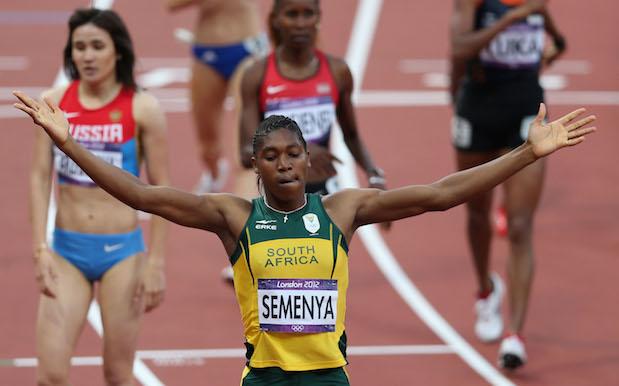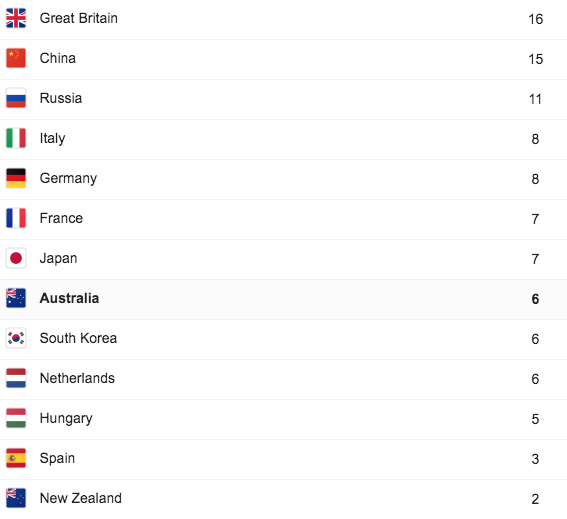

Mid-distance runner Caster Semenya is going to race at the Rio Olympics, and she is almost certainly gonna win.
Earlier this year at the South African trials she dominated the 400m, 800m and 1500m and, even more impressively, managed to win all those races on the same afternoon. Seemingly just as inevitable as her victory is the controversy that will explode soon after.
Semenya was unceremoniously dropped from international competition in 2009 when the International Association of Athletics (IAAF) announced that she had an intersex condition, which means her testosterone levels are more than three times higher than expected in a woman (hyperandrogenism).
Only under the proviso she take testosterone suppressants – which negatively affected her performance – was she allowed to return to racing in 2011. Four years later though, it’s a different story. Hyperandrogenic Indian sprinter Dutee Chand made history last year when the Court of Arbitration for Sport (CAS) decided she was allowed to compete in track and field events, and that hormone testing for females was both ineffective and discriminatory.
Chand never seemed in the running to win a medal, and has largely been spared the brunt of negative attention. Caster Semenya, however, is back to racing with her natural levels of testosterone, and is in career best form. Her participation has divided the sporting world, with athletes, scientists and sporting groups in furious disagreement as to whether she should be allowed to compete. Most notably, the President of the IAAF recently announced his intent to challenge the CAS decision, though that won’t happen until after these games are finished.
On the other hand, many are celebrating the CAS decision, calling it a win for human rights, and a blow against the politicised policing of women’s bodies. Yes, Semenya has an advantage over her opponents, but what champion doesn’t have an advantage?
Some athletes have better access to state of the art training, and some are uniquely biologically well suited for their events. Michael Phelps didn’t get where he is today through sheer focus and hard work alone, he was blessed with a genetically superior body that approaches hydrodynamic perfection as well. Is Semenya’s high testosterone level really any different from Usain Bolt’s insanely long legs, or Thorpie’s flipper-like feet?
The Olympics, like life, are unfair. Sure, there’s a big song and dance (literally) at the opening ceremony about diversity and inclusiveness, but fundamentally the Olympics are about elitism. Not everybody gets a medal, some medals are better than others, and God Save The Queen gets sung a whole lot more than God Defend New Zealand.

Pictured: The National Anthem Singing Tally
Fundamentally (and to get regrettably existential for a minute), it’s not important if the Olympics are totally fair, because that’s an impossibility. What is important is that they seem fair, so that we the audience can enjoy the spectacle, and so that the athletes who fill up the field feel as though their training might not be for nothing.
This is why we have categories, like weight divisions in boxing. It seems divisive by definition that men and women don’t compete together in most sporting events, but actually, it’s more inclusive than the alternative. As Professor Ross Tucker puts it:
“At least 8,000 men have run faster than every women’s track athletics world record. Without the ‘protection’ of a women’s category, women would disappear from most elite sport.”
Hyperandrogenism isn’t just a competitive edge, it is a political and ethical challenge. It is now widely accepted that gender is a spectrum, so any definite line that gets drawn dividing men and women in sport is going to be arbitrary, and hurtful to somebody. Then again, not drawing a line at all is clearly a problem too, as it would exclude the vast majority of women from competing.
But the Olympics don’t operate in a vacuum. Perhaps, more important than the events themselves are the messages they send, and the myths we build around them. In the first modern games professional sportsmen were barred from competing. The rule discriminated against anybody without enough money to train themselves. When that rule was scrapped, it was a great breakthrough for equality of opportunity. When Jesse Owens won four gold medals at the 1936 games, it wasn’t just a glorious sporting achievement, it was a refutation of Hitler’s evil racial theories.
When Caster Semenya and Dutee Chand run in Rio, they’re not just competing against their fellow athletes; they’re competing against an entire repressive political structure. The fact that they’re allowed to compete at all will give hope to gender diverse people all over the world. Maybe that’s the most important thing.
Photo: Getty / Cameron Spencer.



